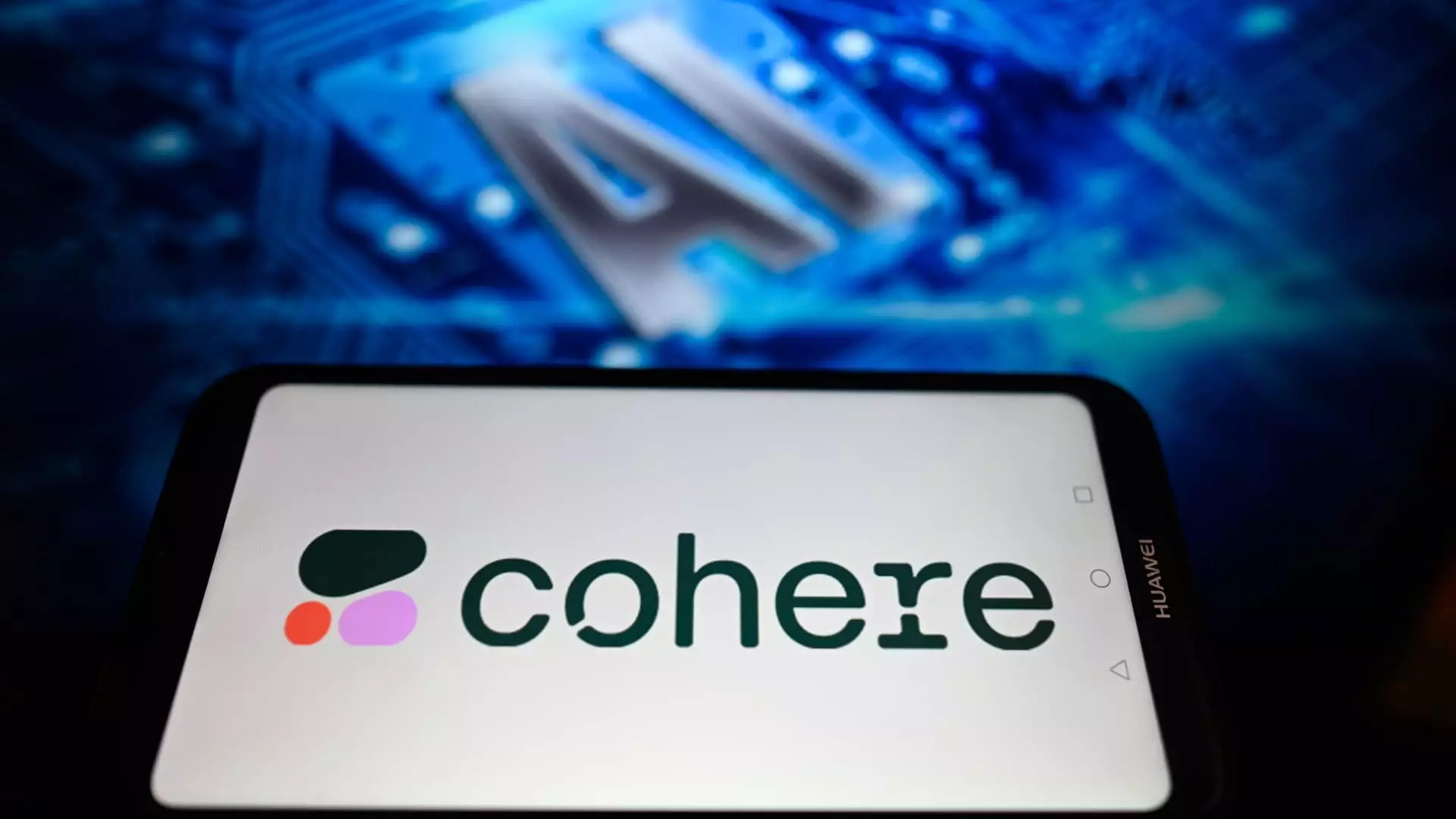In the current landscape dominated by discussions around artificial general intelligence (AGI), Cohere stands out as a company that deliberately maintains a distance from the buzz surrounding these advanced AI concepts. Co-founded by former Google AI researchers in 2019, Cohere has rapidly gained recognition for its role in the generative AI sector, particularly following the success of ChatGPT launched by OpenAI in late 2022. Unlike consumer-focused firms, Cohere has carved out a niche for itself, prioritizing business applications over consumer interest and adopting a pragmatic approach that eschews the lofty ambitions of achieving superintelligent AI.
Nick Frosst, the co-founder of Cohere, emphasizes that inquiries from corporate clients gravitate toward practical solutions rather than theoretical advancements. Engaging with sectors such as healthcare, banking, and IT, Frosst reports that business leaders are more concerned with automating operational tasks—such as managing HR workflows, payroll processes, research operations, and fraud detection—to enhance productivity. The enthusiasm for AGI or artificial superintelligence is notably absent in these conversations, underscoring the difference between lofty ambitions within the AI community and the practical realities of business needs.
Cohere’s valuation recently soared to $5.5 billion following a substantial funding round that secured $500 million, a remarkable achievement for a company that has yet to reach its fifth anniversary. High-profile investors such as Nvidia, AMD, Salesforce, and Oracle have backed Cohere, illustrating confidence in its enterprise-focused model. However, the valuation remains dwarfed by industry giants like OpenAI, which is reportedly valued at an astonishing $157 billion, and Anthropic, rumored to be negotiating a $60 billion valuation.
While competitors are expanding their offerings to appeal to both consumers and enterprises—such as OpenAI’s ChatGPT Enterprise and Anthropic’s Claude Enterprise—Cohere’s strategy is distinctly focused on enterprise applications. Frosst asserts that large language models serve as effective automation tools designed to handle mundane, repetitive tasks and to act as ‘co-workers’ for humans. This targeted approach allows Cohere to sidestep the costly pitfalls associated with consumer products, positioning the company to serve industries where efficiency gains are more readily quantifiable.
Cohere’s future ambitions revolve around the development and deployment of AI agents, which represent a step beyond traditional chatbots. Unlike generic AI systems, these agents are tailored for specific business functions, offering customization and the ability to perform complex multistep tasks autonomously. This innovative model enables users to achieve higher levels of efficiency without a detailed manual input.
The recent launch of “North,” Cohere’s early-access program for its AI agent platform, marks a significant leap forward. The platform promises ease of use, allowing users from diverse technical backgrounds to customize and deploy agents with minimal effort. Frosst envisions this system as a way to unlock organizational information management and workflow automation across industries, particularly in finance and healthcare sectors where regulatory compliance around data is critical. This focus showcases Cohere’s commitment to not just providing AI solutions, but also ensuring that those solutions operate within the necessary compliance frameworks.
Despite challenges in attracting consumer attention, Cohere has been able to maintain a lean operation and capitalize on opportunities in enterprise AI. According to Martin Kon, Cohere’s operating chief, the focus on enterprise allows for efficient resource management, addressing concerns related to chip shortages and fluctuating costs for essential graphics processing units (GPUs) from Nvidia. This aligns with Frosst’s analysis that Cohere has become increasingly capital-efficient, a quality that is drawing investor interest at a time when many competitors are overstretching their resources on consumer applications.
Though the path to establishing a strong foothold in enterprise AI involves navigating longer sales cycles, Cohere has built a model that emphasizes recurring revenue, positioning itself well for sustainable growth. The arrival of increasingly competitive AI agents from rivals such as Anthropic, which now boast capabilities to perform tasks akin to human computer interaction, further pushes Cohere to innovate while firmly holding onto its core business focus.
In a space characterized by rapid technological advancements and intense competition, Cohere’s strategy of prioritizing business needs over consumer excitement may prove not only wise but essential. By fostering a deep understanding of enterprise demands and redefining the application of AI, Cohere is not just participating in the AI evolution; it is carving a unique path that could lead to significant advancements in how businesses operate.

